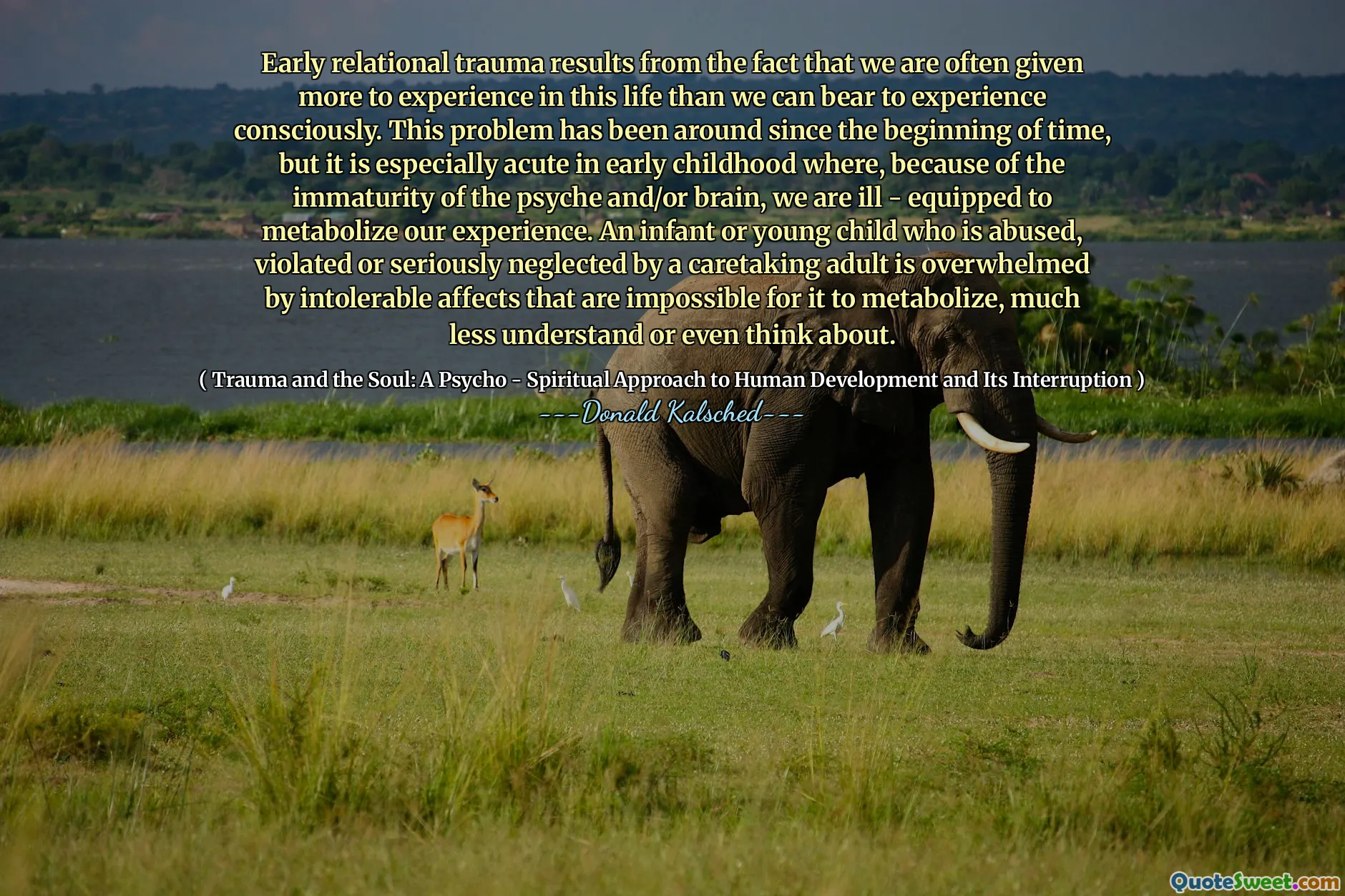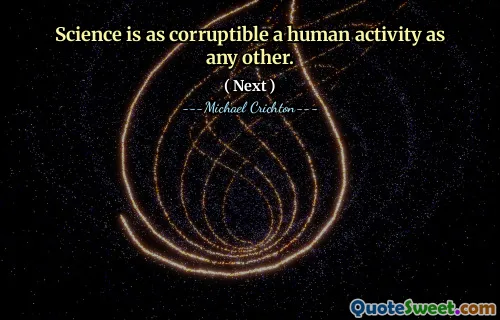
Early relational trauma results from the fact that we are often given more to experience in this life than we can bear to experience consciously. This problem has been around since the beginning of time, but it is especially acute in early childhood where, because of the immaturity of the psyche and/or brain, we are ill - equipped to metabolize our experience. An infant or young child who is abused, violated or seriously neglected by a caretaking adult is overwhelmed by intolerable affects that are impossible for it to metabolize, much less understand or even think about.
This quote incisively captures the profound challenges faced during early childhood when an individual's developing psyche is vulnerable and less capable of handling intense emotional experiences. The idea that early relational trauma occurs because we are burdened with more than we can consciously endure highlights the overwhelming nature of pain and suffering for the young mind. It starkly illuminates the limits of mental and emotional processing in infancy and early childhood, emphasizing how the immature brain and psyche are fundamentally unequipped to metabolize or make sense of traumatic experiences. The depiction of infants or young children being abused or neglected by those meant to provide care underscores a chilling paradox: those entrusted with protection may become sources of deep psychological injury. This breach not only causes immediate suffering but can set patterns for difficulties in emotional regulation, self-understanding, and relationships throughout the lifespan. The concept of 'intolerable affects' suggests feelings so intense and unmanageable that the child cannot consciously recognize or process them, perhaps leading to dissociation or fragmented aspects of self as protective mechanisms. Understanding such dynamics is crucial for therapists, caregivers, and society at large, illuminating why early intervention, nurturing relationships, and compassionate therapeutic approaches are essential for healing. Importantly, the quote urges us to appreciate early relational trauma as a formative spotlight on human development, reminding us that the wounds sustained in these fragile periods demand profound empathy and nuanced intervention strategies. These insights foster a greater awareness of the interplay between psychic development and environmental influences, ultimately contributing to a more holistic and compassionate approach to trauma recovery.


